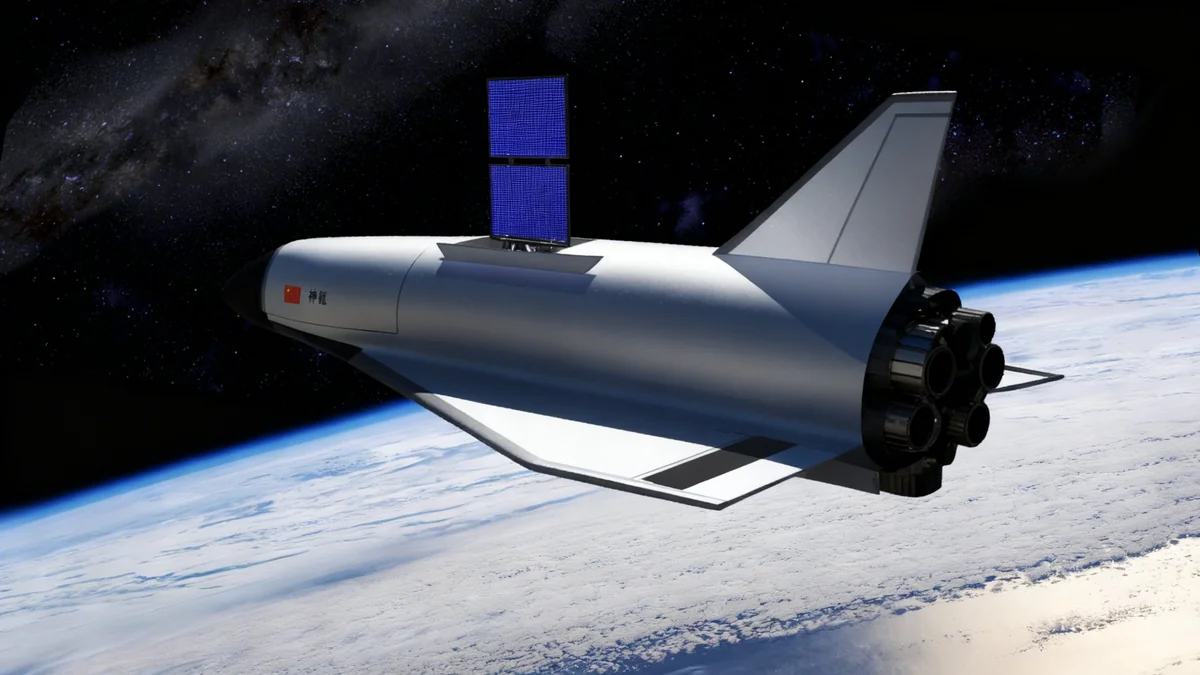The United States Space Force has awarded a $1.9 million contract to ExLabs, a U.S. startup, to advance the development of a next-generation modular spacecraft platform. The funding aims to support the Department of Defense's growing requirement for adaptable and persistent infrastructure in orbit.
This Direct-to-Phase II contract will specifically accelerate the progress of ExLabs' SERVSAM platform, a heavy-class, reconfigurable vehicle designed for a wide range of mission profiles. The initiative reflects a strategic shift towards more flexible and responsive in-space operations.
Key Takeaways
- ExLabs, a U.S. space startup, has been awarded a $1.9 million contract by the U.S. Space Force.
- The funding is a Direct-to-Phase II contract to develop the SERVSAM spacecraft platform.
- SERVSAM is designed as a heavy-class, reconfigurable spacecraft for flexible missions in any orbital regime.
- The project aligns with the Department of Defense's goal of building modular, persistent infrastructure in space to enhance operational speed and capability.
A New Generation of Spacecraft
The contract focuses on ExLabs' innovative spacecraft, known as SERVSAM (Servicing and Assembly Module). This platform is engineered for adaptability, a crucial feature as the demands of space operations become more complex and varied. Built upon the company's core SERV architecture, SERVSAM is intended to operate across all orbital regimes, from low Earth orbit to geosynchronous and beyond.
The ability to reconfigure a spacecraft while in orbit represents a significant leap in operational capability. Traditionally, satellites are designed for a single, specific purpose with a fixed lifespan. A modular platform like SERVSAM could potentially be upgraded, refueled, or repurposed, extending its useful life and allowing it to meet new challenges as they arise.
What is a Direct-to-Phase II Contract?
A Direct-to-Phase II contract is part of the Small Business Innovation Research (SBIR) program. It allows companies that have already demonstrated technical merit and feasibility, often through other means, to bypass the initial Phase I and proceed directly to a more substantial Phase II development effort. This accelerates the timeline for promising technologies to move from concept to prototype.
This approach supports the Pentagon's long-term vision for a more dynamic and resilient space architecture. Instead of relying on monolithic, single-use satellites, the focus is shifting towards an ecosystem of serviceable and interoperable assets that can work together.
Strategic Importance for National Security
The investment in platforms like SERVSAM underscores the growing importance of space as a strategic domain for national security. The U.S. Space Force and the broader Department of Defense are increasingly interested in capabilities that enhance operational tempo and provide a sustained presence in orbit.
Matthew Schmidgall, the CEO of ExLabs, highlighted the strategic value of this approach.
"We’re developing adaptable infrastructure designed to meet the evolving demands of space operations. As mission tempo increases, dual-use commercial platforms will be key to maintaining strategic advantage."
Schmidgall's comments point to a critical trend: the convergence of commercial innovation and government defense needs. By leveraging private-sector agility, the Department of Defense can access cutting-edge technology more rapidly and cost-effectively. These dual-use platforms can serve both commercial and government clients, creating a more sustainable business model for startups in the space industry.
The Growing In-Space Servicing Market
The market for in-space servicing, assembly, and manufacturing (ISAM) is projected to grow significantly. This includes missions like satellite refueling, life extension, debris removal, and in-orbit assembly of larger structures. Investing in foundational platforms like SERVSAM positions companies to capture a share of this emerging multi-billion dollar market.
Building on Previous Success
This $1.9 million contract is not an isolated effort for ExLabs. It builds upon the company's expanding portfolio of public-private partnerships. The development of SERVSAM is complemented by ExLabs' ongoing work in advanced in-space robotics, an area supported by a separate contract known as a TACFI (Tactical Funding Increase).
These interconnected projects suggest a comprehensive strategy to build out a suite of technologies for in-space servicing and assembly. The key components of such a system would include:
- A versatile spacecraft bus: The foundational platform, like SERVSAM, that provides power, propulsion, and communications.
- Advanced robotics: The arms and tools needed to manipulate, repair, or assemble objects in space.
- Sophisticated software: The control systems and autonomy required to perform complex tasks with precision.
By securing multiple government contracts, ExLabs is steadily validating its technology and business model. Each award provides not only funding but also a critical endorsement from a key government partner, enhancing the company's credibility within the aerospace and defense sectors.
The Future of In-Space Infrastructure
The development of reconfigurable spacecraft is a cornerstone of the future space economy. Such platforms could enable a wide range of new activities that are currently impractical or impossible.
Potential Applications
A mature SERVSAM platform or similar technologies could be used for:
- Satellite Life Extension: Docking with aging but still functional satellites to refuel them or replace failing components.
- Orbital Debris Removal: Capturing and de-orbiting defunct satellites and other space junk to clear orbital pathways.
- In-Space Assembly: Assembling large structures like space stations, telescopes, or interplanetary vehicles in orbit, bypassing the size limitations of rocket fairings.
- Rapid Mission Deployment: Quickly launching a standardized platform and outfitting it in orbit with a specific mission payload, reducing response times for urgent needs.
As the number of satellites in orbit continues to grow, the need for this kind of flexible infrastructure will become more acute. The contract awarded to ExLabs represents a small but significant step toward realizing this vision of a more sustainable, dynamic, and capable presence in space.





